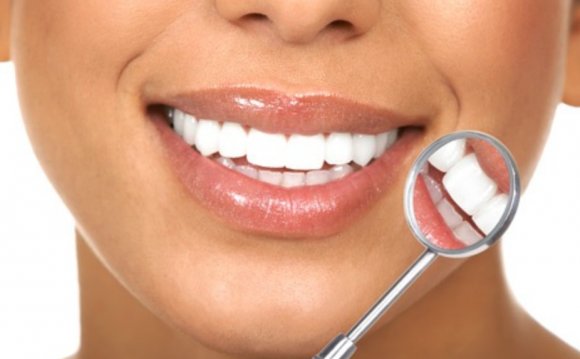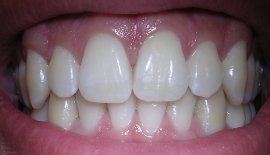
Most people wish they had that Hollywood smile. The kind of smile that can light up the room and dazzle those around us. Unfortunately, when it comes to dazzling, most of us have to make do with a slightly sheepish, off-white grin. The good news is this needn’t be the case.
There are so many teeth whitening options available now that there is no reason why we can’t have beautifully white teeth. The advances in teeth whitening techniques over the last few years have been dramatic and what was once the preserve of the rich can now be done at home and at very little cost.

Does Tooth Whitening Work?
In a word, yes. Whitening can be very effective at lightening the colour of your teeth. It’s largely non-invasive and will lighten the tooth without causing any damage to the surface. While it won’t give you healthier teeth it will lighten them and give you a brighter smile. To qualify this it is important to understand how the process works.
As we age our teeth naturally change colour. This is caused by many factors. The things we eat and drink all contribute to the darkening of teeth. If you are a smoker this too will cause a change in the colour. In general, staining of teeth is unavoidable and, while cutting out smoking will help prevent further darkening, it is more difficult to avoid foods and drinks which contribute.
So as we reach a certain age we will notice a change in colour and decide to take steps to remedy this. There are basically three main methods of teeth whitening. These are teeth bleaching, using a whitening toothpaste and laser whitening. Bleaching and using a whitening toothpaste can be performed at home while laser treatment should be conducted by a professional.
Bleaching is the most common approach to whitening. This can either be done at home with a do it yourself kit or through ‘chair-side whitening’, a process where the dentist will oversee the bleaching in his surgery. The ‘bleach’ usually contains hydrogen peroxide or carbamide peroxide which when applied and broken down will react with oxygen to penetrate the enamel and dentine to make the tooth appear whiter.
While chair-side whitening can be usually be performed in a single visit, home bleaching will usually take two to four weeks.
Teeth Whitening for Sensitive Teeth
While teeth whitening is usually pain free, the chemicals used can often cause some discomfort or irritation for those who suffer from sensitive teeth. If this is something you suffer from then it is important to consult your dentist before undertaking any whitening treatment. They will be best placed to advise you on what kind of treatment you can and cannot undergo.
If you have an underlying dental problem your dentist will most often advise you to seek treatment for this before going through a whitening procedure. However, even if your dentist feels you aren’t a good candidate for bleach whitening there are alternatives you can utilise. While these methods may take considerably longer to take effect, it will save you from any discomfort.
The most obvious approach to whitening for sensitive teeth is to use a whitening toothpaste. Almost all of these toothpastes contain a combination of baking powder and smaller levels of peroxide. Through prolonged use they can be very effective and many of them have been formulated for sensitive teeth.
Another method is through the use of whitening strips. These strips are applied to teeth which have been treated by an accelerator gel and get to work by gently lightening teeth and removing stains. They will usually dissolve within five to ten minutes making them ideal if you do not have a lot of time to spare. Unlike most whitening toothpastes they seldom contain any peroxide.
Does Laser Whitening Work?
Laser whitening is a very popular approach among people who are wanting to see their teeth become whiter quickly. It is a process which can be conducted in under and hour and as such it is decidedly more expensive than the other methods available.
However, although the immediate results are undeniable, it has been found that laser whitening doesn’t last as long as bleaching with people often requiring two or three follow up sessions. Despite it’s name, laser whitening doesn’t actually use a laser to get the job done.
Instead, the gums are covered by a guard and an accelerating gel is applied to the teeth before a light is shone on the area to speed up the whitening process. It is often known as chair-side power whitening and can only be performed by a qualified professional, preferably your own dentist. This is important if you are suffering from sensitive teeth as your dentist will know the right combination of gel and light to use to reduce impact on your teeth.
Other than the speed at which laser whitening can be done, the big advantages are that it won’t damage the teeth’s enamel and it can be used to restore any veneers, crowns or fillings back to their original colour.
Laser Teeth Whitening Side Effects
Laser teeth whitening is a safe procedure which for the majority of the population will not cause any side-effects. However, as with bleaching for some people there can be some mild and temporary side-effects. The most common is an increase in tooth sensitivity for a couple of days after the process.
This sensitivity will usually manifest when exposed to hot or cold drinks. Other people may feel some discomfort around the gums or some irritation in the throat, but as with the sensitivity these symptoms will disappear within a few days. If they do not abate then it is important you consult your dentist.
One section of society who should not undergo laser whitening is pregnant women. At the moment there has not been enough research into any effect the agents used may have on pregnant women and it is unknown if they could cause any harm to an unborn child. Your dentist will refuse to conduct the procedure if you fall into this category, but use caution and common sense anyway.









